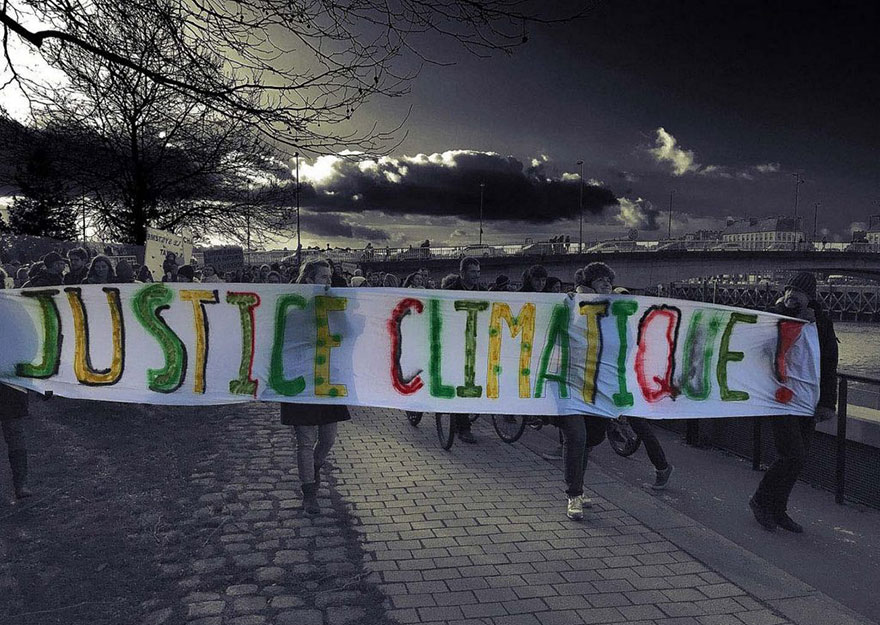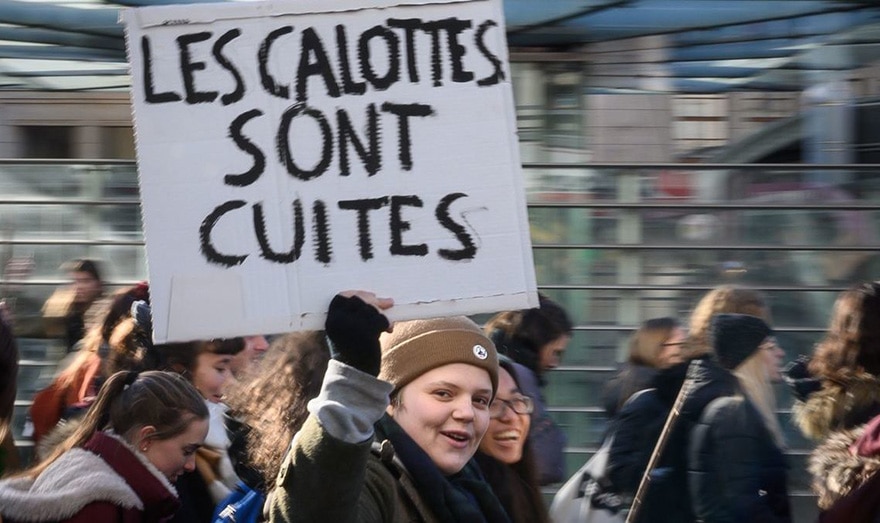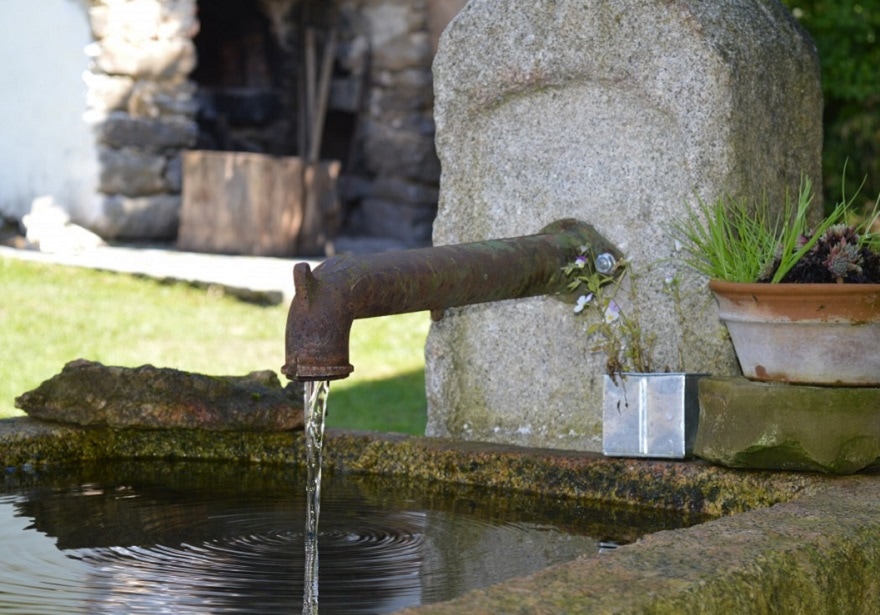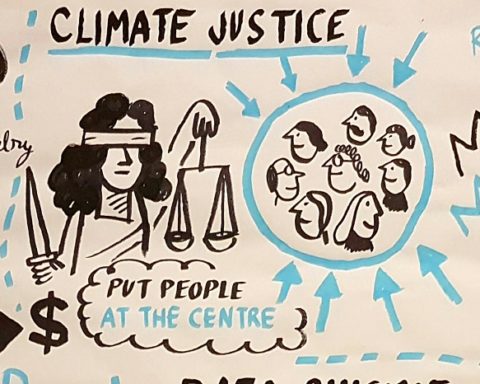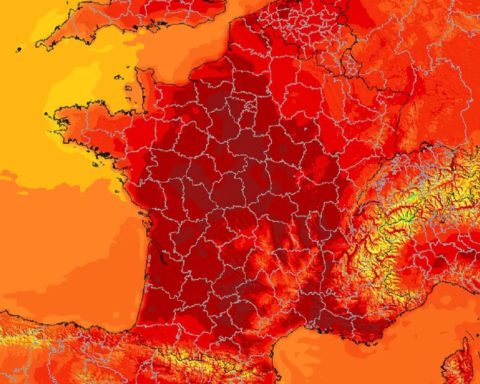However, "The Case of the Century" is not the first action to bring the environmental issue to the courtroom. In the Netherlands, the Philippines ColombiaIn just a few years, the court has become the new venue for resolving the climate crisis. Faced with insufficient political action and legislative shortcomings, national judges are increasingly being called upon to take action. solicited by civil society to decide the climate issue.
This "judiciarisation" of the climate arouses passions, opposition and expectations. Charged with hope for those who call for a "climate revolution", it awakens in others the fear of a "government of judges" that would threaten the separation of powers.
Separation of powers
This principle, which has survived all the revolutions since the 17th centurye century, does indeed carry considerable stakes. Theorized by Montesquieu in The Spirit of the LawsThe separation of powers aims to ensure a balance between the judiciary, the legislature and the executive: "So that power cannot be abused, it is necessary that by the disposition of things power should stop power," wrote the philosopher in 1748. "There are, in every state, three kinds of power": legislative power, executive power and judicial power. To ensure freedom, each power must be separated from the other and thus be able to balance and counterbalance each other.
Faced with the multiplication of climate appeals from civil society, through the intrusion of the judiciary in other spheres, is this separation of powers threatened today?
Is this a "judicial revolution", which will mark a new turning point in the normative power of the judge - hitherto limited to the interpretation of the text of the law?
Ensuring the application of the law
In reality, legislative instruments exist in France to protect the environment, despite their inadequacies: impact studies, the obligation to compensate, citizens' rights to information and participation in environmental matters, etc. All these tools are just waiting to be properly applied.
The role of the judge is therefore not to create new ones, but first of all to control and verify that this law is properly applied. Without overstepping his or her duties, the judge therefore exercises a balancing role in order to protect citizens against possible "abuses" of the executive and legislative powers. Climate remedies do not therefore necessarily seek to push the judge to go beyond his or her functions by creating standards: they simply invite the judge to enforce existing law.
Which the judge doesn't always choose to do. On the 1ster Last February, for example, the Court of Cergy rejected an action brought by Greenpeace and other NGOs, seeking the annulment of the "European Convention on Human Rights".drilling licence approval in French Guiana granted to Total by the Prefect of the French Overseas Department.
This decision, which was very disappointing, could have made the difference. The authorisation of this drilling clearly contradicted France's climate commitments. The judge had an opportunity to enforce environmental law here: he was not being asked to encroach on other powers or to create new provisions.
"The Case of the Century", an appeal to the judge's creativity
However, some cases are more difficult from a legal point of view. Their chances of success will depend on how much leeway the judge has, and whether or not he or she chooses to be creative. This is the case of the "Case of the Century".
This case is based on the idea that France would have a general duty to act on climate issues, based on Articles 1 and 2 of the Environmental Charter The latter provide respectively that: "Everyone has the right to live in a balanced environment that is respectful of health" and that "Everyone has the duty to take part in the preservation and improvement of the environment". It thus highlights the "culpable failure" of the French State in the area of climate change; the latter is said to have committed a fault by not respecting its commitments and objectives in the area of climate change.
On this point, the administrative court, limited in its function to the interpretation of existing law, will have to base its decision on a principle - a general climate obligation - which does not yet exist as such in our law, but which can be derived from Article 1 of the EC Treaty.er the Environmental Charter (on the right of everyone to enjoy a healthy environment).
In this regard, the French judge has already shown a certain amount of "creative" room for manoeuvre, having been able to "set a precedent" by enunciating a general principle later became a rule. This initiative concerns theErika caseThe case is a case of "pure ecological damage", which had not previously existed in our law, involving a Total oil tanker that sank on 12 December 1999 off the coast of Brittany.
Proving causation
For the "Case of the Century", the greatest difficulty for the French judge will lie in proving the existence of a causal link between the inaction of the French State and global climate change.
This issue is not entirely new, however, as it had been possible to convict the French State for "culpable failure" in thegreen algae bloom in Brittany. And in July 2017, the Council of State had enjoined the government to better adapt French law to the European directive on the air pollution.
However, these decisions were based on specific State obligations: in the first case, State inaction was clearly substantiated as an "aggravating" cause of the toxic algal bloom; in the second, there was a clear obligation for the French State to honour very specific obligations not to exceed air pollution thresholds. For climate change, this obligation is less obvious because it has not yet been enshrined in a text with a strong normative scope, but rather in "open-textured" texts of a programmatic nature.
Symbolic decisions
If the judges were to accept the State's failure to act in the "Case of the Century", the administration would be obliged to make good the alleged shortcomings or failures. But this will be at most an obligation of result. It seems unlikely that the judge will rule on an obligation of means.
An obligation of result enjoins the expectation of a specific objective, but does not dictate the precise manner in which it is to be achieved (which remains entirely at the discretion of the State); an obligation of means goes a step further, requiring the adoption of specific, compulsory means and, where appropriate, incurring responsibility in the event that those specific means are not taken. The decision will thus be more symbolic than truly remedial.
For the NGOs, however, it would be a victory: they would have succeeded in bringing the case before a judge, in having the State condemned and in bringing a subject of society beyond the circle of activists and sympathisers. This would legitimize the judge's referral to remind the other powers of their role in protecting society as a whole against a peril that threatens our current systems of life and endangers our lives, the lives of future generations and the future of the entire planet.
In the meantime, other actions are being prepared to ban initiatives deemed "climate-friendly". Nearly 24 projects considered harmful to the climate have been identified in France by the association Acting for the environment and by the EESC in launching an open debate on activities against climate change.
Let us therefore prepare ourselves to see in the months and years to come a multiplication of climate justice actions. Let us hope that they will enable judges to play their role as guardians and guarantors of citizens' rights, in order to encourage the state and businesses to do more for the climate.
Marta Torre-SchaubCNRS Research Director, lawyer, specialist in climate change and environmental and health law, University of Paris 1 Panthéon-Sorbonne
This article is republished from The ConversationUP' Magazine's editorial partner. Read theoriginal paper.
Anything to add? Say it as a comment.![]()

